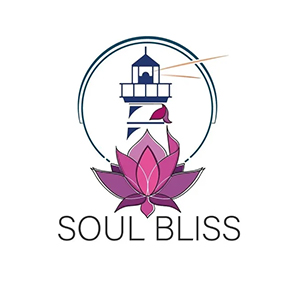
Author: Natasha Cecchettini, Psychologist
In part I of this article, we talked about how we need to seek a more questioning and deeper look at everything that happens to us so that experiences serve to increase our self-knowledge and, with that, emotional intelligence. We also talked about how we experience facts according to the meaning we attribute to them, this being a result of the way we interpret it based on the “baggage” of learning we bring from life.
We then realize how we can see illness as the process that allows consciousness to be brought to a new balance.
Return to top
To understand all this in more depth we need to go to our first years of life when we were forming the basis of our consciousness. When we begin to say I, we begin to “separate” ourselves from everything that we perceive as not me, as you, and by taking this step, consciousness becomes a prisoner of polarity.
The self is then tied to the world of oppositions which is divided, not only into me and you, but into good and bad, into right and wrong, into feminine and masculine, into illness and health and so on. The constitution of the human ego means that it is unable to bring to consciousness the perception of Unity, or Totality. Every identification that is based on a decision leaves one of the poles out of consciousness. Everything that we don’t want to be, everything that we don’t want to find within ourselves, that we don’t want to live, and everything that we don’t want to let participate in our identification, forms what Carl Gustav Jung called the shadow of our consciousness, or its verse. Rejecting half of all the possibilities we perceive does not in any way make them disappear from our universe, but rather only excludes them from personal identification or the identification carried out by our conscious mind.

The “no”, in fact, only made one of the poles disappear from our sight, but that didn’t mean we got rid of it. Thus, the shadow becomes the greatest danger for people, as we all have it, without knowing it and without knowing that it exists. It is the shadow that can ensure that all the efforts and objectives of our consciousness actually transform into its opposites, if we do not know how to recognize it.
In general, human beings occupy themselves more with what they do not want, and in doing so they come so close to the rejected principle that they end up succumbing to it. Every rejected principle will tend to ensure that the person lives that same principle. According to this law, when we are not aware of this process, children later in life adopt exactly the same behaviors that they hated in their parents’ personality. So, often, over time, pacifists turn into war activists, moralists lead a life of dissipation and health fanatics become ill.

Therefore, the refusal to accept part of reality can force people to be intensely concerned with it. This, most of the time, happens through projection, which is a defense mechanism in which characteristics and/or desires are attributed to another person that are unacceptable to them, it is the perception of their own feelings and attitudes in another person. As soon as we reject a certain principle and banish it from our consciousness, it will always generate fear, anger, irritation or discomfort in us when we encounter it in the so called external world, that is, in the other.
What’s inside is the same as what’s outside
Like a microcosm, in the inner universe of the human being there is a reflection of all the principles of Life, of the Macrocosm. Consciousness, in its relationship with the world, experiences polarity, and its rejection of part of the possibilities forces it to experience, at some point, aspects of itself that were latent, hidden, through a process of self-regulation. This can happen through illnesses and/or projections that generate conflicts in your inner and outer world in such a way that, with their help, you can become progressively more aware of yourself.
When a person becomes a victim, they end up preventing this process of becoming aware (self-awareness). The abandoned pole is expelled into the shade and continues to demand attention (that’s why the symptoms demand our attention). Illness is a form of expression of these contents, of these emotions that have been repressed, rejected by consciousness. Thus, the content manifests itself in the body as a symptom, as a symbol of something that was left out by consciousness.
Through the body, the entire symptom forces us to live some principle that consciousness had deliberately chosen not to live, and this, in a way, already reestablishes a balance. The symptom can be seen as the possibility for man to become more honest with himself, because it can make visible what was previously invisible. Therefore, the most important thing to reflect on is not the “why” we get sick, but the “for what” (you can read about this topic in the book Dor Para Quê, by our physiotherapist and author Sara Costa), i.e. the purpose of the symptom. What does he or we, through it, seek to bring to consciousness?
If the illness happened at work, or because of work, what do I need to bring to my awareness in relation to work, or the relationships I live in there?
To understand what the symptoms want to tell us, that is, to learn their language, we need to learn to think in analogies, since it is expressed in a symbolic way and just like when we learn a new language, understand the meaning of that language takes its time. However, anyone may soon begin to notice that people who are sick often describe, along with the physical symptoms of the illness, something that they are unaware of.
One sees poorly, due to conjunctivitis or some vision problem and needs to broaden their perception of things. The other has a cold and “has things through their nose”, feels overwhelmed by overwork due to a lack of assertive positioning, or because they are victimizing themselves. The other has a problem with his back or a joint and cannot bend because he is too rigid, the other cannot “swallow” because he has a sore throat or cannot “express himself”. The other suffers from incontinence because he cannot contain his impulses, or has an allergy because he believes the environment is aggressive to him, the other cannot hear… and there is the one who would like to tear off his skin because he scratches so much. It can be difficult for a person to confess to themselves that they don’t want to be in their own skin and that they would like to go beyond all limits. The unconscious desire, or the unconscious emotion, however, is realized in the body.
In this article we will not be able to address the symbology of all diseases, so the focus here is more on a new way of thinking about diseases and symptoms, whether they are related to work, or other aspects of life. life.
Illness and emotional intelligence
The four basic pillars of emotional intelligence are self-knowledge, self-management, empathy and relationship management. We have focused so far on the pillar of self-knowledge. Now here are some valuable tools that can also help with the other pillars.
When something takes you off track, to manage your self-management do the following:
-
- Stop – ask to stop the discussion for a while to think about what happened and leave
-
- Reflect – think about which battles are worth fighting, think about whether you are not projecting aspects of your shadow onto others and analyze what you lack awareness or, sometimes, your difficulty too You may need to know how to position yourself. If this is the case, think about how to be more assertive
-
- Observe – after the heat of the moment has passed, try to observe the situation from a broader point of view. Try to understand and integrate both sides by observing from the outside
-
- Respond – see what is the best way to communicate without being aggressive and without failing to show your point of view
Regarding empathy the tip is:
all behavior has a need behind it
Try to understand people’s needs and take a more collaborative approach, or if the situation calls for a firm position, have the courage to do so assertively.
As for relationship management the advice is to become aware of affective communication, which means to be aware of the affection that is generated through the way something is communicated. In all communication, an affective field is formed and the energy formed by this field can favor or inhibit people from giving certain responses.
Another important tip is to think that the people who irritate or bother you the most can be your greatest teachers by helping you become aware of what you reject.
James Allan from the book Man Is What He Thinks says the following:
“The outer world of circumstances shapes the inner world of thoughts, and external conditions, both pleasant and unpleasant, are factors that contribute to its final outcome for the good of the individual. As reapers of their own harvest, man learns through suffering as well as through happiness. (…).
Men do not attract what they want (only), but what they are.”
Share this article with anyone who could benefit from this information. If you need, leave us a message, we are here to help at this challenging time in your life.






